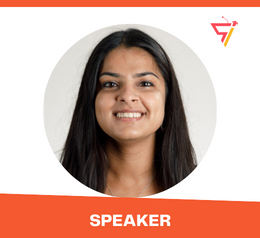Scholars International Conference on
PHYSICS AND QUANTUM PHYSICS
THEME: "Recent Research Methodologies and Discoveries in Physics and Quantum Physics"
 27-28 Mar 2023
27-28 Mar 2023  Crowne Plaza Ealing, London, UK & Online
Crowne Plaza Ealing, London, UK & Online THEME: "Recent Research Methodologies and Discoveries in Physics and Quantum Physics"
 27-28 Mar 2023
27-28 Mar 2023  Crowne Plaza Ealing, London, UK & Online
Crowne Plaza Ealing, London, UK & Online 
University of Illinois Urbana- Champaign, USA
Title: Decomposition of Anomalous Diffusion in Generalized Lévy Walks into its Constitutive Effects
Vidushi Adlakha is a Postdoctoral Research Associate in the Department of Physics at the University of Illinois Urbana-Champaign, USA. Her research interests include physics education, statistical physics, and computational physics. She is a member of the Committee on Status of Women in Physics by the American Physical Society (APS). She has previously conducted research with institutions and universities across the globe, including Max Planck Institute (Germany), the University of Palermo (Italy), the University of Houston (USA), and Jawaharlal Nehru University (India). She is also a recipient of the prestigious American Association for University Women (AAUW) International fellowship.
Anomalous diffusion is observed in a variety of physical and social systems, including blinking quantum dots, animal locomotion, intra-day trades in financial markets and cold atoms in dissipative optical lattices. Generalized Lévywalkscanbeusedtomodeltheirdynamics.This research shows that the anomalous diffusive behavior found in these systems can be decomposed into three fundamental constitutive causes. These causes, or effects, are related to ways that the Central Limit Theorem fails.
The increments generated through the stochastic process can have either long-time correlations, infinite variance, or be non-stationary. Each of these properties can cause anomalous diffusion and is characterized by what is known as the Joseph, Noah and Moses effects, respectively. In generalized Lévy walks, a complex combination of these effects leads to the observed sub- and super-diffusive behaviors. We analytically calculate the scaling exponents determining each of the three constitutive effects and confirm the results with numerical simulations. The results satisfy a fundamental scaling relation between the exponents. This study of stochastic processes will open a new frontier for data-driven innovation, which will extend beyond physics to include relevant and critical systems such as biological and socio-economicsystems.My current research focuses on applying causal inference principles to the analysis of observational studies in physics education.